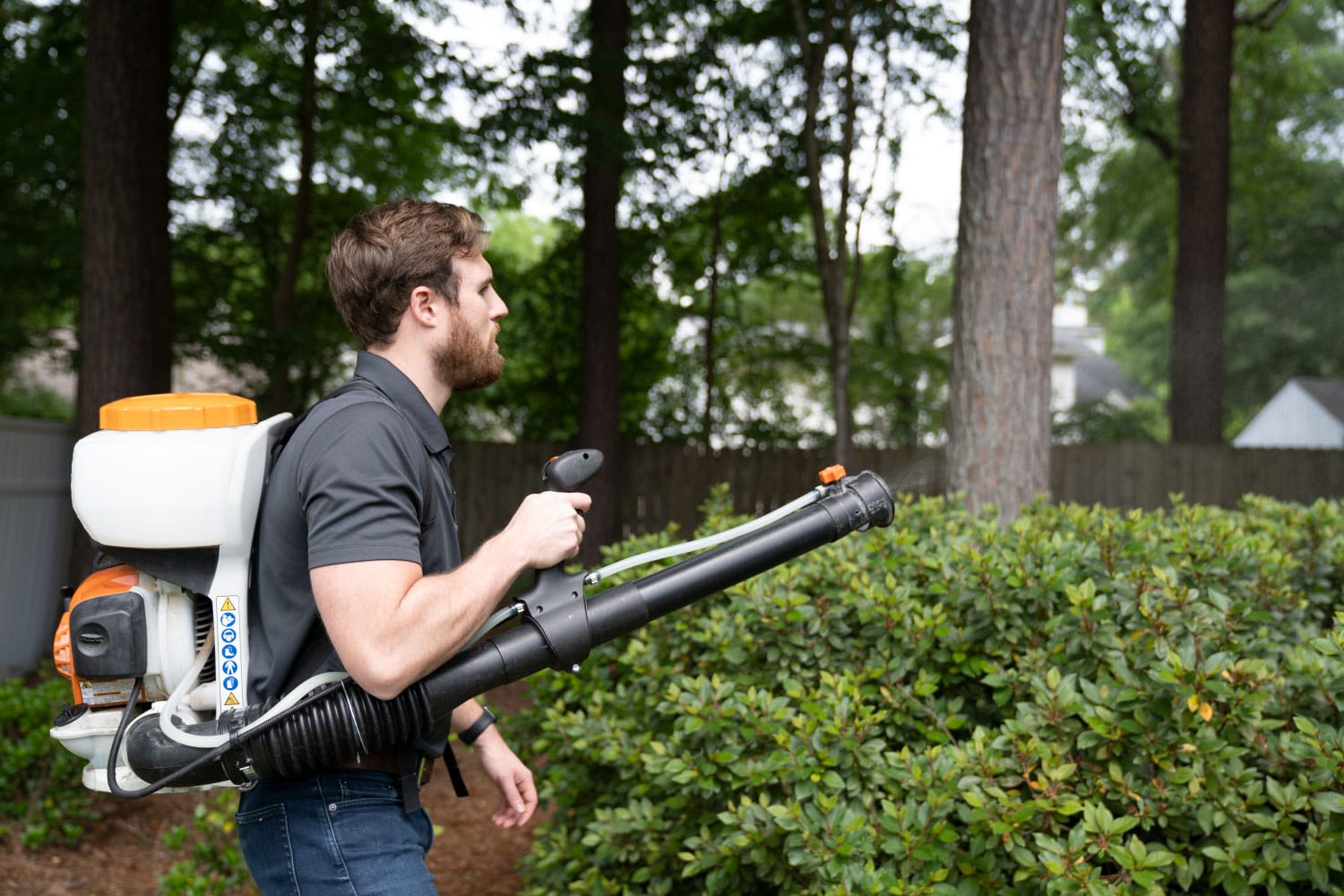In Georgia, the summer comes with a few guarantees: stifling heat, humidity, and mosquitoes. Lots of mosquitoes. As temperatures fall from autumn into winter, the mosquito population seems to all but disappear, leaving us in peace for much of the cooler weather. It almost seems we mentally block them out of our minds once we can grill in peace for fall football games or spend time in the yard without citronella or bug spray, but there are a few things we can do during the winter months to prepare our yards for mosquitos.
How Can I Minimize the Spring Mosquito Population?
Mosquitos can’t regulate their own body temperature, which means they require warm temperatures to be active. Lethargy sets in around 60 degrees, and 50 degrees renders them relatively immobile. This is great news for Metro Atlanta, as winter temperatures often dip below that threshold. Female mosquitoes will seek places to lay eggs or hibernate once temperatures drop. Locations include hollowed logs, animal burrows, or even basements.
What You Can Do to Minimize the Spring Mosquito Population
- Keep your yard free of debris, such as firewood piles, fallen trees, stumps, or other piles of debris that may have accumulated
- Backfill vacant animal burrows
- Make sure your living spaces are well sealed
- Remove any standing water
How Can I Ensure My Yard Does Not Have Standing Water?
In season, it isn’t uncommon to see mosquito larvae in standing water. The cool months are a great time to audit your yard for areas that may hold or allow water to stagnate as we often have wet winters.
Clean Your Gutters
After leaf and needle drop slows in the fall, clean your gutters to reduce the moisture held against your house, which will eliminate a haven for many insects, including mosquitoes. The standing water provides a great spot for hatching and maturation, while decaying leaf material provides nutrition for development. Taking a warm winter day to clean your gutters can greatly reduce your mosquito populations.
Redirect the Moisture from Your Downspouts
When it rains, do your downspouts direct water away from your house? Over time, impact from the water exiting the downspout can create a divot beneath the gutter. In some cases, this can create areas where water can sit and stagnate, providing a place for eggs to hatch and larvae to develop. The same can be said for drain pipes associated with HVAC equipment. Redirection or distribution of this moisture limits opportunity.
Remove Items in Your Yard That May Hold Water
Bird baths that don’t have moving water offer a great place for mosquito larvae to mature. Unintentionally, we also often have other places that hold moisture on our properties. Old lawn equipment, children’s toys, pots from previous landscaping, buckets from washing cars, or any other vessel that holds water offers mosquitoes an opportunity to lay eggs. Taking care of these in the winter will keep females from laying eggs in them as spring approaches.
Set Up Applications for Mosquito Control in March
Did you know that Nature’s Turf starts mosquito treatments in March? While that may seem early, warm days in late winter give way to many warm days in early spring. This is the period of time when females emerge from hibernation, begin feeding, and seek spaces to lay their eggs. By starting early, we reduce the populations as they emerge, not waiting for them to start proliferating.
Important Takeaways
- Winter is a great time to audit your property for ways to reduce mosquito populations.
- Take action to limit locations for hibernation and overwintering by egg: clean debris, fill vacant animal burrows, and seal cracks in your house.
- Ensure that your yard does not have standing water: clean gutters, redirect the moisture from your downspouts, and remove items that allow for standing water to limit locations where adult females can lay eggs when they emerge from hibernation.
- Start mosquito treatments with us in March for population control at emergence, reducing the opportunity for adults to lay eggs.








